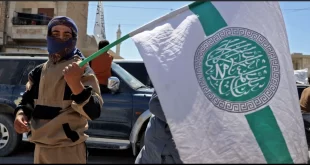Oct 24, 2013, Strategic Culture
Historic allies, the United States and Saudi Arabia, are in the midst of a full-blown row, after the kingdom’s spy chief Prince Bandar bin Sultan threatened that their strategic liaison was on the rocks.
The sulking sultan is no stranger to maverick mood swings. But there is good reason to believe that the senior Saudi is not merely acting alone, and that this is the obscurantist kingdom’s way of expressing strategic frustrations…
Rumbling tensions over various geopolitical issues have now erupted into full public glare when Prince Bandar briefed invited unnamed Western diplomats to his majlis at the Red Sea city of Jeddah last weekend. The purpose was for the Saudi royal to vent his anger over recent «disappointments» caused by Washington’s policies in the Middle East.
«This message is for the US», said Bandar, who was formerly Saudi ambassador in Washington.
According to the Wall Street Journal, the Saudi intelligence chief told diplomats that the kingdom was now seeking other strategic allies, without specifying just who these new partners might be. Whether a full break with Washington will come to pass is moot, but the fact that the more than eight decades of staunch alliance between the US and Saudi Arabia is being dangled in the wind shows that there are deep misgivings and high stakes over recent geopolitical developments.
Arm-twisting tactics by Prince Bandar are nothing new. Earlier this summer the Saudi spymaster tried to cajole Russian President Vladimir Putin to ditch Moscow’s historic alliance with Syria. Bandar, who is also known as «Bandar Bush» owing to close ties to the Washington establishment, attempted to inveigle Putin then with a mixture of bribes and threats.
During the private meeting with the Russian leader Bandar reportedly offered Russia lucrative oil and gas contracts in the Middle East and hinted that he could ensure security for the forthcoming Sochi Winter Olympic Games by exerting his influence on Al-Qaeda-linked terror groups. To his credit, the Russian president gave his Saudi guest short shrift over the unseemly proposal.
The recent weekend confab in Jeddah between Prince Bandar and Western diplomats followed the extraordinary move by Saudi Arabia to reject a non-permanent seat on the UN Security Council. That seat had been much coveted by the Saudis and had been offered after lobbying from Washington. The Saudi snap rejection was therefore a calculated snub to Washington.
Officially, the Saudis endeavored to cloak that decision with high-minded principle, claiming that it was a protest over the Security Council’s inability to defend the rights of Palestinians, create a Middle East free of weapons of mass destruction, and failure to sanction the «Damascus regime» of Bashar al-Assad in Syria.
Nobody is buying that self-righteous, stilted rhetoric. Saudi Arabia has shown little interest in defending the historic rights of the Palestinians under relentless Israeli expansionism, and the kingdom is one of the main purveyors of (non-nuclear) weapons of mass destruction in the Mid-East, if not the entire world.
The real reason for the Saudi chagrin with its American patron is the latter’s failure to launch an all-out military assault on Syria last month, when Russian diplomacy secured a chemical weapons decommissioning deal to avert American aggression. The other major related factor for the Saudi spat with Washington is the latter’s new diplomatic overture to Iran in their ongoing nuclear dispute.
This pressing connection was alluded to by Khalid al-Dakhil, a political science professor at King Saud University in Riyadh. He told Bloomberg news: «We don’t know what the Americans are trying to do with Syria», he said. «They seem to be using Syria as a bargaining chip with Iran».
US Secretary of State John Kerry also let the cat out of the bag after a damage-limitation meeting earlier this week in Paris with the Saudi Foreign Minister Prince Saud al-Faisal. Kerry was speaking ahead of the so-called Friends of Syria conference in London.
«We know that the Saudis were obviously disappointed that the [Syria] strike didn’t take place», said Kerry, adding: «and [they] have questions about some of the other things that may be happening in the region.» Those Saudi questions are obviously over US overtures to Iran.
The Western regime-change covert war in Syria, which has been raging since March 2011, is all about pursuing a geopolitical pincer on the bigger prize, Syria’s main regional ally, Iran. The Western agenda has of course been fully signed up to by regional proxies, such as Turkey, Israel, Jordan, Qatar and perhaps most fervently by Saudi Arabia.
The Wahhabi House of Saud perceives the Shia Islamic Republic of Iran as its nemesis for regional influence because of the Iran’s more progressive policies in terms of both domestic and foreign policy. The truth is that Saudi Arabia – the Custodian of the Two Holy Mosques of Islam – views Iran more an existential threat than it does Israel even as the Israeli regime continues to desecrate Islam’s third holiest site in East Al Quds (Jerusalem).
Consistent with this Saudi obsession to thwart Iran is its position as the main sponsor of the various mercenary groups fighting in Syria for the Western regime-change objective. The barbarous extremism of the mercenaries is also consistent with Saudi Arabia’s long-held logistical and ideological links with Islamic extremists.
The problem for the Western powers is that the military tactic of ousting Syria’s Assad government is proving an abject failure. This was tacitly admitted by the US, Britain and France in London this week when the UK’s Foreign Minister William Hague said that the military situation had reached «a stalemate». That is not correct. The Syrian armed forces are making steady gains at wiping out the remaining foreign-backed insurgents. What Hague really meant was the Western covert war had reached exhaustion.
That is why the US, Britain and France are belatedly pushing for a political path at the planned Geneva II conference – a path that would extricate them from the quagmire that these powers have largely created in Syria through fomenting the mercenary networks with their Saudi point man, Prince Bandar.
Out of the Western-led axis only Saudi Arabia appears to remain wedded to the futile bloodletting in Syria, which some estimates put at over 100,000 total deaths, and which has given rise to a burgeoning humanitarian crisis that is destabilizing neighboring countries.
The rejection of Western calls to attend the proposed Geneva II talks by the exile opposition group, the Syrian National Council, is a reflection of this Saudi recalcitrance. SNC leader Ahmad Jarba is close to Riyadh’s thinking.
The apparent rapprochement between Washington, London and Paris with Iran also signal the West’s keenness to shift tactics over Syria to the political field, given the losses on the battlefield. The engagement with Tehran and the incentive of up to $50 billion in unfrozen Iranian assets has the whiff of horse-trading to induce political concessions over Syria.
But the reactionary House of Saud seems unwilling to countenance any such move that would inevitably make concessions to Iran. Western political maneuvering may be able to afford some space to Tehran for short-term tactical reasons, but not so the Saudis whose self-preservation instincts and outright ideological confrontation with Iran are implacably hostile.
Such internal contradictions within the Western axis are straining the historic alliance between Washington and the House of Saud.
Since its formation as a modern state in 1932, Saudi Arabia and the US have been tightly aligned, primarily over oil interests. The relationship was cemented at the end of World War II when US President Franklin D Roosevelt formed a pact with Abdulaziz Ibn Saud, the kingdom’s founding ruler. The essence of that deal was that the House of Saud would guarantee Washington its oil supplies in exchange for military protection.
If anything, the strategic US-Saudi arrangement has become even more entrenched since then as Saudi petrodollars shore up the US Treasury and the primacy of the American dollar as the world’s trading currency. This allows the American Federal Reserve to keep printing money – even though the fundamentals of the US economy do not merit the country maintaining this privilege of racking up endless debt.
As the world’s biggest exporter of oil and the pivotal force in the OPEC club of producing nations, Saudi commitment to the US dollar as the global means of conducting commerce is therefore a lifeline for Washington’s moribund economy.
Saudi Arabia’s extravagant purchase of US armaments is also part of this recycling of petrodollars. Last week, it was reported that Washington was selling some $11 billion-worth of cruise missiles and other advanced ordnance to Saudi Arabia and its smaller Persian Gulf client, the United Arab Emirates.
Only a year ago, the US and Saudi Arabia announced a weapons contract worth some $60 billion. The American arms industry is an integral part of the Saudi petrodollar strategic relationship.
It is not clear what the latest Saudi threats against its traditional American patron entail.
The Wall Street Journal reported Prince Bandar telling Western diplomats that the kingdom «plans to scale back cooperating with the US to arm and train Syrian rebels’. That could mean an even more protracted bloody quagmire in Syria as the Saudis go for broke and escalate their supply of American-made weapons to the Al Qaeda extremists of Al Nusra and Islamic State of Iraq and Levant.
The explosive danger for the Middle East region from a turbo-charged Saudi sulk with Washington over Syria, including more false flag terror attacks, could result in the kind of all-out war that the US so recklessly dallied with but pulled back from last month.
Perhaps even more worrying for Washington would be if the Saudis started tampering with the petrodollar life-support system. Never mind that that would also probably spell the downfall of the House of Saud. When a kingdom is ruled by temper-tantrum despots the danger of irrationality is always a contingency.
 Syria Support Movement solidarity with the Syrian people
Syria Support Movement solidarity with the Syrian people





